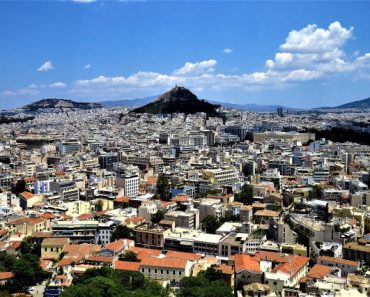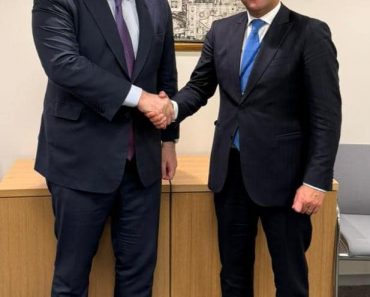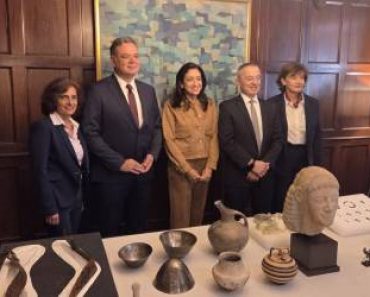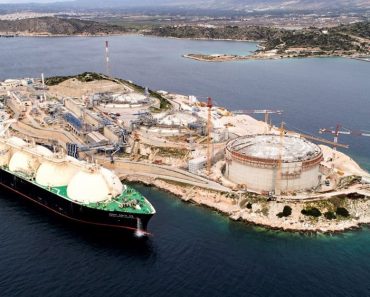“Relations are excellent at the political level and what is important now is to strengthen economic and cultural cooperation, because when relations are very good, sometimes there is an almost inertial tendency to relax,” said Paulo Rangel.
During the official visit, the Portuguese Minister of State and Foreign Affairs was received by the Prime Minister of Greece, Kyriakos Mitsotakis, and his Greek counterpart, Giorgos Gerapetritis, and also visited the coordination centre of Frontex – the European Border and Coast Guard Agency.
Paulo Rangel argued that Lisbon and Athens should “seize the opportunities,” stating that the governments of both countries want to “create a kind of impetus to boost the economic and cultural side of the relationship, which, while interesting, has much greater potential.”
Among these areas, the minister pointed to opportunities for Portuguese companies “in crucial sectors” for Portugal such as shipbuilding, defense, and energy, particularly renewable energies.
The minister highlighted that “a path has been travelled,” especially in terms of air links between the two countries, which has allowed “a doubling of the offer in recent years.”
In tourism, Portugal received over 40,000 Greek tourists last year, while between 120,000 and 130,000 Portuguese visited Greece.
Within the EU, the two countries, both from Southern Europe, are willing to “take some initiative in promoting an alignment of positions” among the cohesion countries to define a negotiating position for the next multiannual financial framework, the long-term budget of the 27.
Frontex
Concluding the visit, the minister visited Frontex, where Portugal currently has approximately 35 members of the GNR (National Republican Guard) and the Maritime Police.
Rangel highlighted “a reinforced commitment from Portugal to Frontex,” in an area that demands the attention of national authorities, considering the external borders, especially maritime ones, which are “very wide.”
Portugal has “a full-fledged involvement with Frontex and its tasks, which are very demanding from the point of view of security and also respect for fundamental rights.”






